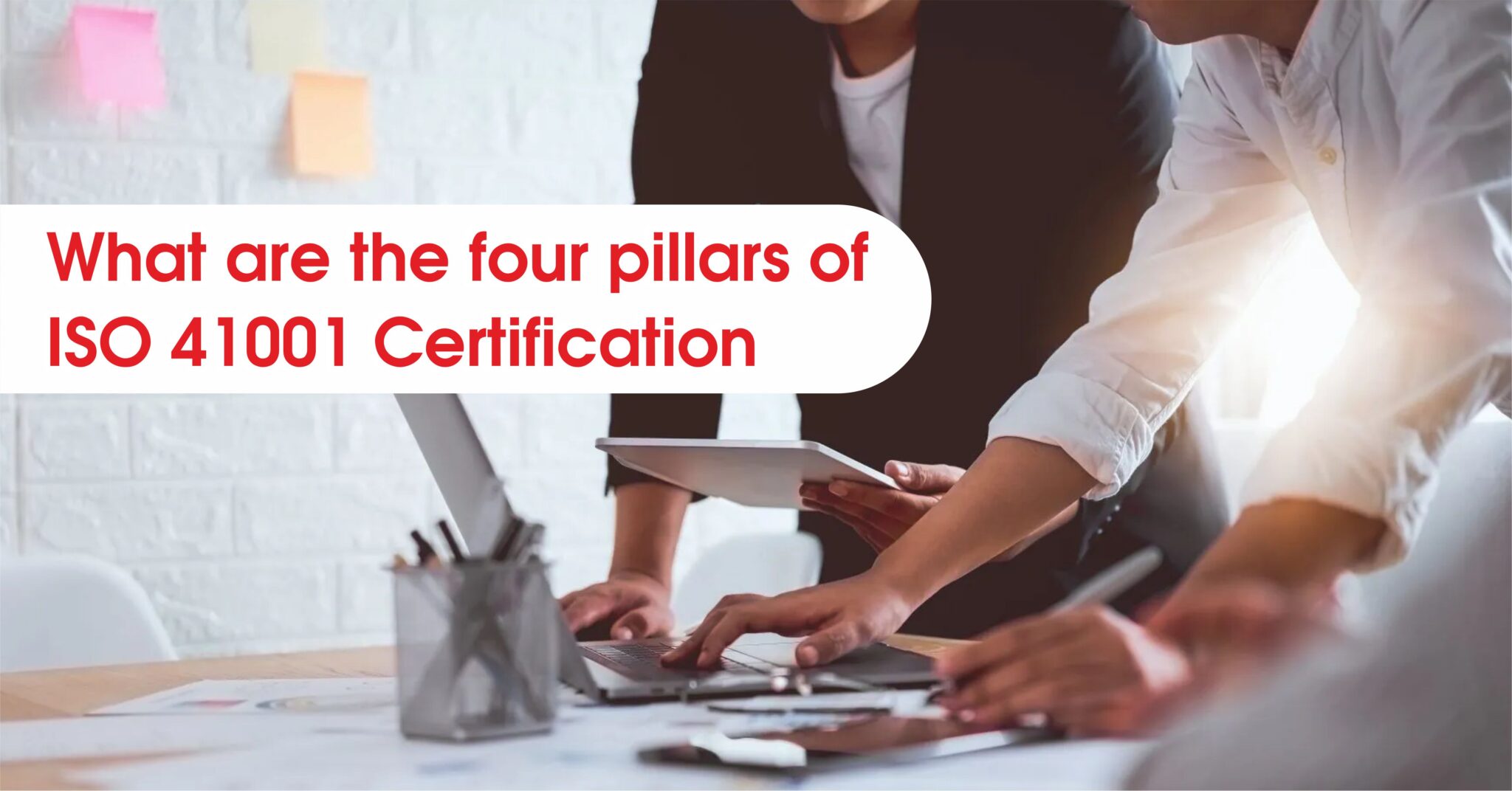An effective Facility Management System (FMS) is significant to ensure smooth operation in the dynamic business world. The International Organisation for Standardisation (ISO) published ISO 41001 Certification to align and meet the demand for standardised procedures in facility management. Organisations may manage their facilities with the help of ISO 41001 accreditation. The certification follows four core principles to establish a robust and long-lasting facility management system.
Four Pillars of ISO 41001 for Facility Management System (FMS)
The four pillars of ISO 41001 certification are as follows: ⮯
First Pillar of ISO 41001 – Leadership and Management
Leadership and Management is at the core of ISO 41001. Moreover, it highlights the value of healthy leadership commitment and effective management systems to implement facility management practices. The Top Management must establish a clear vision for facility management, aligning it with the organisation’s overall objectives. However, defining roles and responsibilities and allocating resources can help organisations improve their internal working.
Comprehensive leadership helps create policies and strategies to address the organisational needs and challenges. The management system must promote principles of accountability, transparency, and collaboration among all stakeholders. Organisations can also instil a sense of purpose and direction by ensuring the facility management aligns seamlessly with the broader business strategy.
Second Pillar of ISO 41001 – Operation
The operation focuses on the day-to-day activities and processes involved in facility management. Moreover, it highlights the importance of efficiency and sustainability in the operation. Organisations with ISO 41001 certificates must establish and maintain processes to deliver quality services to meet regulatory and occupant requirements.
It also focuses on asset management and space utilisation to implement preventive and corrective maintenance measures. However, organisations must assess and optimise resource usage to manage energy consumption and waste management to enhance overall operational performance. Organisations can minimise downtime through systematic planning and execution. Moreover, ensuring effective operations helps to reduce costs and create a safe and comfortable environment for customers, clients, and stakeholders.
Third Pillar of ISO 41001 – Performance Evaluation
Continuous improvement is the cornerstone of ISO 41001 Certification. It highlights the significance of performance evaluation to assess and enhance the effectiveness of the facility management system. Organisations must establish performance metrics and indicators to monitor and evaluate the overall performance of a Facility Management System (FMS). However, organisations conduct regular audits, inspections, and management reviews to identify areas for improvement and maintain compliance with legal and regulatory requirements.
Performance evaluation is a tangible aspect of facility management. However, it also monitors customer satisfaction by taking stakeholder’s feedback to adapt to ever-changing circumstances. Organisations can make informed decisions by systematically reviewing performance data to implement corrective actions.
Fourth Pillar of ISO 41001 – Planning
Planning lays the groundwork for the successful implementation of ISO 41001. It focuses on strategic planning and risk assessment to develop a robust business continuity framework. Organisations must identify and prioritise the significant aspects of their Facility Management System (FMS) by defining the stakeholders and their needs.
Strategic planning involves setting objectives and defining processes by allocating resources to achieve desired outcomes. Business continuity planning ensures that organisations can respond effectively to unforeseen events by causing minimum impact on facility management and maintaining a high level of service delivery.
Conclusion ✅
Organisations seeking to improve their facilities management system can use the extensive guidelines provided by ISO 41001 Certification. Organisations can increase productivity and well-being while cutting expenses and improving efficiency by incorporating the four pillars of ISO 41001 into operations. ISO 41001 offers a road map for businesses to adjust to changing business conditions and prosper in the fast-paced field of facility management.



